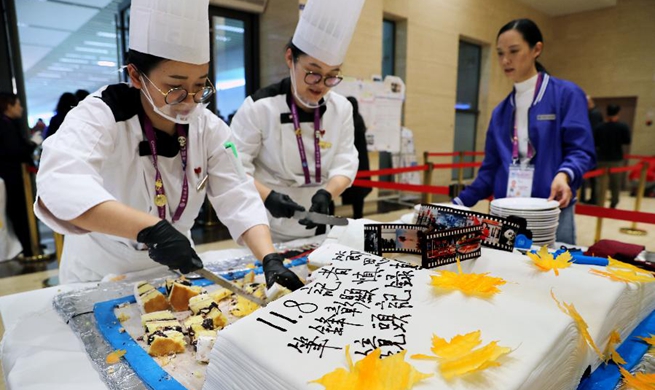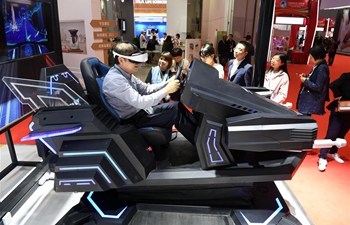LAUSANNE, Switzerland, Nov. 8 (Xinhua) -- Because of hard working, Chinese researchers are making remarkable progress in the research of artificial intelligence (AI), Swiss and Chinese AI experts said on Friday.
"Today if you go to any major AI conference, it's hard to find a paper that does not have at least one Chinese author. Actually many of the papers have only Chinese authors," said Boi Faltings, full professor of AI at Swiss Federal Institute of Technology Lausanne (EPFL) and founder of the Artificial Intelligence Laboratory at EPFL.
His remarks came at the third Sino-Swiss Artificial Intelligence and Big Data Conference in Lausanne, Switzerland.
According to Faltings, behind China's progress in AI today is not only the largest population of students and researchers in the field, but "they also work very hard."
"If you go to the labs at Tsinghua University on Sunday afternoon, you will find a lot of people there", he said, "people just work very hard in China as well."
Also at the conference, Tan Jianrong, academician of Chinese Academy of Engineering, gave a little more insight on the application and R&D of AI in China.
Tan cited the application of AI in voice recognition by Chinese AI firm iFlytek, whose software can today interpret more than ten languages in real time and has been extensively utilized in education, communication, music, intelligent toys industries.
AI technology has also largely improved the operational efficiency of infrastructures in China, including high-speed railways, civil aviation, hotels, border control and navigation, Tan said.
The next step, he said, would probably be an extensive deployment of AI technology in the industrial sector and engineering, or "smart manufacturing" as he calls it, as Chinese manufacturers are moving upward in the supply chain by restructuring and upgrading.
Friday's event, co-hosted by China Academy of Information and Communications Technology and EPFL, aimed to bring together scientists and experts from academia and industry to share ideas and visions in applications of AI and big data.
In addition to the scholars, a host of AI pioneering companies from China and Switzerland shared their views and cases of AI application in health data analytics, virtual nursing assistants, defect detection, robot process automation, predictive maintenance and human-robot collaboration.













